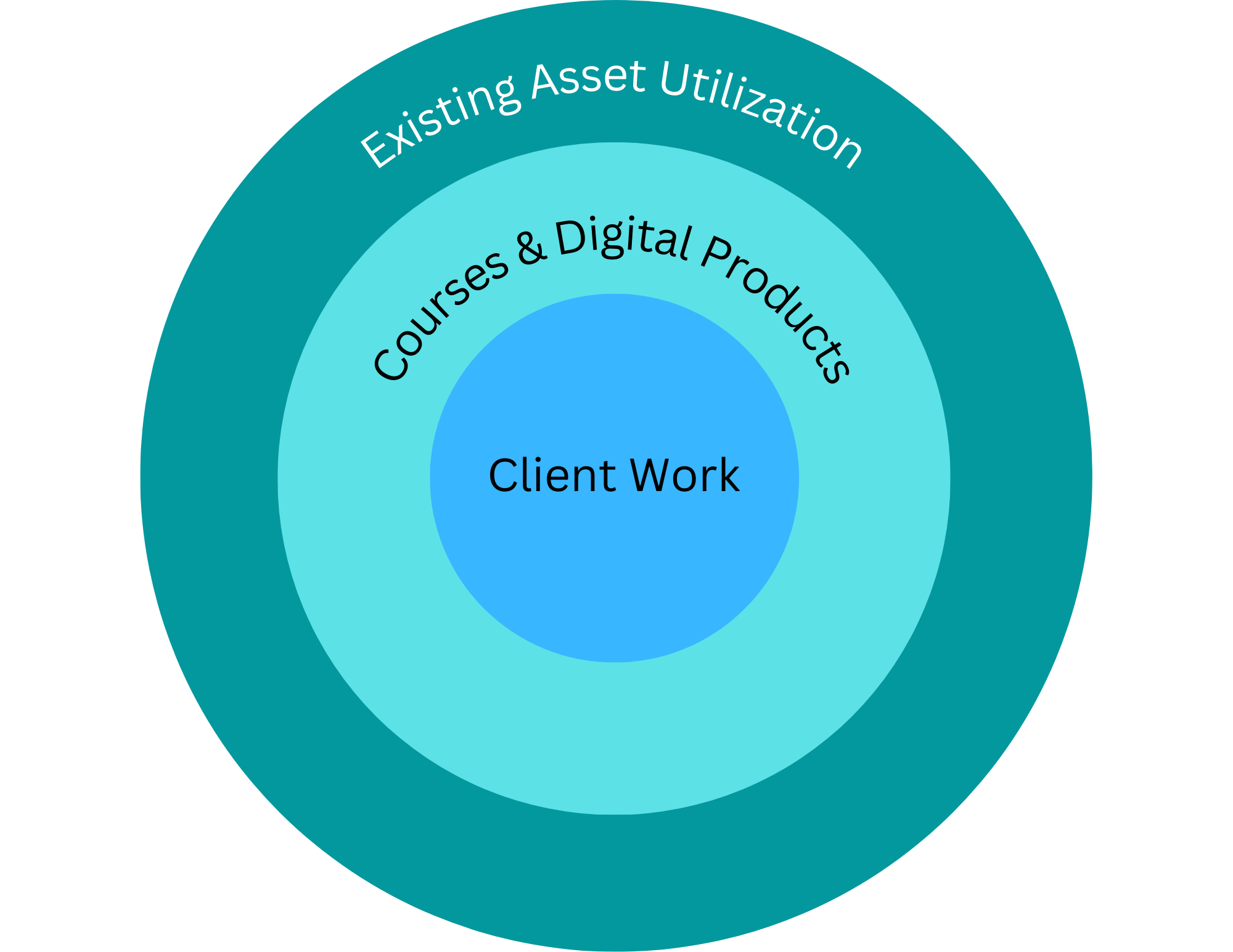How to Never Face Burn Out as a Creator ( I Did! )
I did not diversify my income early enough.
Years back I worked at a music production house in LA. A dream come true. I composed music for global advertising campaigns and TV series.
And I did what many music creators do. I worked my ass off and poured everything I had into that company and its projects and clients. Then they let me go. I had built no network, was burnt out, and had to start from scratch.
With all the hard work I put in, I had nothing to show for and my whole dream of being a successful composer was ruined.
I didn't want to experience anything like this again so I decided to change my approach to business. One income stream wouldn't cut it anymore. I needed at least 3.
It doesn't matter if you only starting out or are a seasoned pro - diversifying your income is critical.
When you're trading time for money as your only income stream, you set yourself up for burnout.
Don't get me wrong. I love working 1-on-1 with clients. And it's perceived as the easiest way to get started as a creator.
Think about it. You set yourself up for failure when you trade time for money as your only income stream. A miserable work balance is the least of your problems. The faster you get the less you get paid. You have to work hard to make ends meet. If you need to up your rates, and at some point, you have to, you have to justify the change to every one of your clients.
When you, however, use this short guide and follow my advice you:
can double or even triple your revenue.
will spend more time with your family and friends
will not be 100% dependent on your client's needs.
can choose what project to work on
can demand higher rates
and take vacations without the constant pressure of being unable to work and make money.
Being dependent on one source of income bears a high risk. Especially if it's a time-for-money kind of business.
I am going to help you with 3 actionable questions to achieve greater freedom and higher revenue from your creator business.
No worries, you can keep working for clients. In fact, I recommend you do, at least until you have some solid income streaming from the other sources.
Ponder about the following questions, answer them one after the other and install them as soon as you can.
Here you go.
Subscribe here to join a growing community of divergent creatives and
Q1: What kind of work do your clients come back to you for time and time again?
If you notice patterns in your work and creative output that means
Clients like the interaction with you in this specific area.
You know all the ins and outs and your customer's questions and problems around that area
Now to get away from the time-money-trap look for a way to productize it.
With productized services, you give your clients neatly packaged "product", where the work is narrowly defined.
Not diverting my attention, I refined my work to be faster, more productive, and deliver exceptional results for my clients.
Specialist > Generalist
Q2: What area of your expertise are you most comfortable talking about even with industry aliens?
Now that you're an expert in your field (don't take that too lightly, though), you can ask yourself this question.
Your answer can become your next step to diversifying your income and risk.
You can consult or coach on that with your peers (read: people that are a step behind). Or create a course or other digital products like templates and e-books.
What I learned when talking to my peers and colleagues, clients, and customers was, that my expertise lies in production music. I had a good run with it and could share my success story in the process.
That is when I started Production Music Composer Academy, a Cohort-Based-Course.
Q3: What are adjacent fields in your industry that you can create assets or products for?
Why adjacent fields?
Let me give you an example:
Imagine for a moment, Eric, a Graphic Designer that mainly does Branding for SMB clients.
He watches a Youtube video, where a smart-looking gal explains how to make money by dropshipping beauty products.
"Interesting", Eric thinks, "let me try that".
He'd crush designing the storefront, logo, and even the product. But, that would be only marginal work compared to sourcing, testing, and finding the right products. Let alone getting to know the people, their problems, and their desires in that niche.
It might be a great business but is the time investment worth it? What if he could also go ahead and use his prior work? His finished layouts for logos, presentations, etc. would be a great starting point. And utilizing a site like Creative Market would start making him money right away.
The work is already done, he knows that his designs work (because he has ongoing projects), and he does not need to learn a bunch of new things to get started.
Do I wish I had started earlier diversifying? Yes, no question about it.
But I chose to use what I had to work within the moment.
No regrets at all.
You're unfair advantage as a creative is, that you're able to create stuff from nothing. Use that power and start diversifying your income today.
TL;DR:
Move away from only 1 income stream
Hours-for-money alone is a high risk
Keep your first income stream fully intact
Move towards a more passive income model
Utilize your existing assets
Use your expertise & monetize it with digital products
See you again next week!
Whenever you're ready I can help you grow your creative business. Book a time with me here!
⬇️⬇️⬇️


